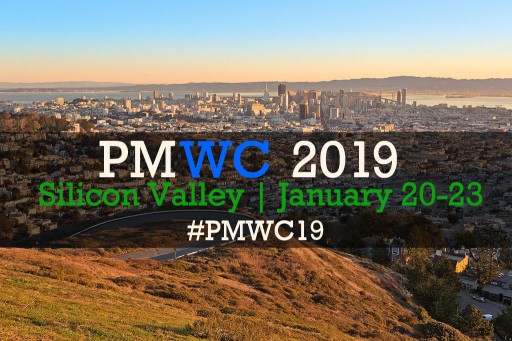USING AI TO ACCELERATE THE PROMISE OF PRECISION MEDICINE
By Marie Daghlian
 Can the application of artificial intelligence (AI) and machine learning (ML) accelerate precision medicine and deliver on its promise? The answer is an unequivocal “yes,” but we are not there yet. There are opportunities along the entire health care value chain but there are also risks.
Can the application of artificial intelligence (AI) and machine learning (ML) accelerate precision medicine and deliver on its promise? The answer is an unequivocal “yes,” but we are not there yet. There are opportunities along the entire health care value chain but there are also risks.
The transformational potential of AI for the biopharmaceutical industry, precision medicine, and the delivery of care was a main topic of several panel sessions over three days at the Precision Medicine World Conference held in January at the Santa Clara Convention Center in the heart of California’s Silicon Valley. In its 11th year, PMWC expanded into a more spacious venue to accommodate more than 2500 attendees that included leaders, innovators, and researchers in precision medicine from biotech and healthcare companies, academia, and medical practices.
In his opening remarks, Atul Butte, director of the Institute for Computational Health Sciences at UCSF, noted that AI and ML are software toolkits that “We are all trying to learn how to use and apply to biomedicine.”
That said, Vijay Pande, a partner in the investment firm Andreessen Horowitz, on a panel on demystifying AI in preclinical drug design and discovery, thinks of AI as not just another tool, but a new way to incorporate all the data—an integrator. “AI is a completely differently way to drive the business, of pushing candidates forward and accelerating that,” he says.
Later, Greg Yap, a partner at Menlo Ventures, echoed Pande’s sentiment. “The importance of AI now is its applications, especially for complex pattern recognition and learning algorithms. “ Yap says. “Its potential applications are enormous. More companies are claiming to have AI, but “The bloom is off the rose,” he says.
Right now, AI is being used at the earliest stages of drug discovery and design—getting to lead faster, optimizing leads for predicting toxicity.

“At this time, AI can be used to augment drug discovery,” says Gini Deshpande, CEO of NuMedii, a pioneer in the use of AI to rapidly discover new precision therapeutics in inflammation, fibrosis, and oncology. “We are nowhere close to the point where you can automate things. Biology is incredibly complex and you also have heterogeneity of patients. You still need deep domain expertise. We’re not at the point where we can say its fully automated and we can run with it. It’s been very helpful in target discovery and drug repurposing. It doesn’t stand on its own.”
Making better predictions would be transformative for the industry, says Daphne Koller, CEO and founder of Insitro, a company dedicated to applying machine learning to a range of biological problems and data sets in drug discovery and development. And AI is particularly useful in this area but you need high quality appropriate data sets to apply it successfully.
Koller expressed a cautionary note about decision makers’ over reliance on prior knowledge for deciding whether or not to pursue something because it keeps them from exploring novel targets.
AI is only as good as the data it crunches and learns from. It excels at pattern recognition and reading images and therefore could be very useful in a predictive diagnostic tool set. A great weakness, however, is that a lot of data is siloed inside pharmaceutical companies, or unstructured or not managed in a way that is useful. There is also the issue equity or inclusion in data sets.
“You will see data sets that are over-selected towards white people and rich people,” Yap says. “That’s going to be a problem as you get to real world evidence. One of the reasons these algorithms are not going to work as well in the real world as they work in training situations is because the training sets themselves are not representative of the population that we are ultimately going to ask them to serve. If you want to take advantage of the power of this, that is to get better, more consistent care for people, we have to be able to bring better training sets to bear.”

So how will AI redefine the biopharma space and what does the future hold? Deshpande went out on a limb to say that the next Genentech, the next Biogen, will probably be a data sciences company or several data sciences companies: “Eventually we’ll see companies becoming fully integrated, doing both the discovery and the development of these candidates; potentially leveraging AI to get them to market faster, and figure out where to deploy their sales forces. I can imagine the entire value chain being driven by machine learning and AI tools that can help speed this up.”
PMWC 2019 in Silicon Valley featured 400 speakers in more than 60 sessions. Besides data sciences and AI, topics discussed at the meeting included how new emerging technologies drive genomics and medical practices; how patient data has become so valuable and how it impacts regulatory policy; how continuous advancements in immunotherapy are changing the way cancer is treated; and how thriving genome initiatives such as Genomic England are improving health care.
MORE:
